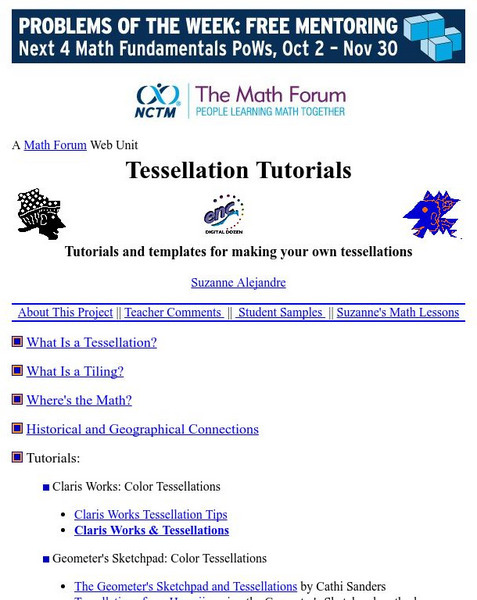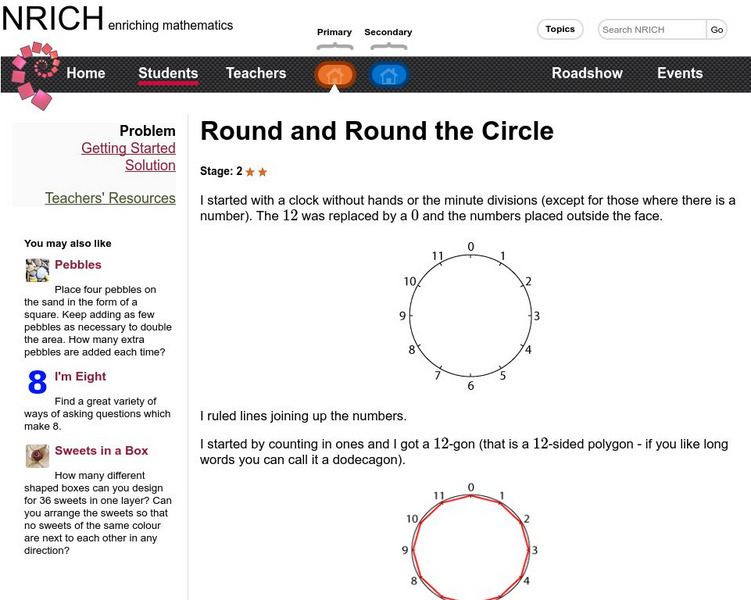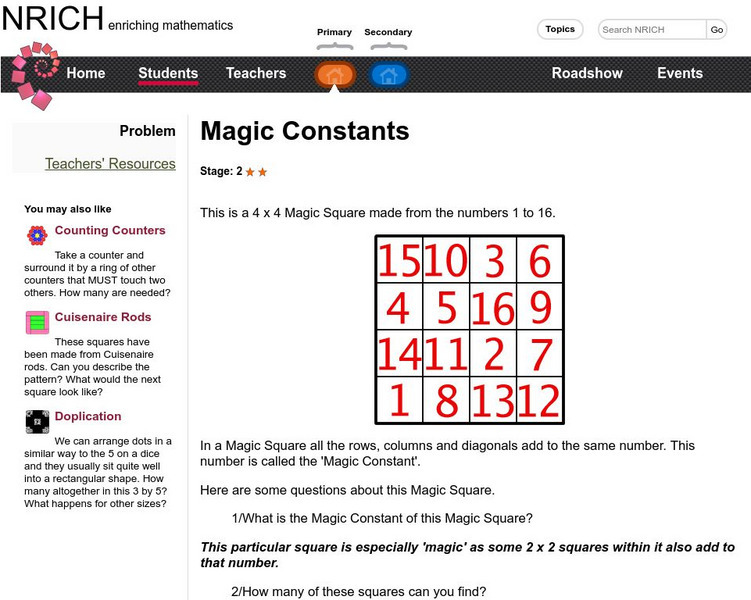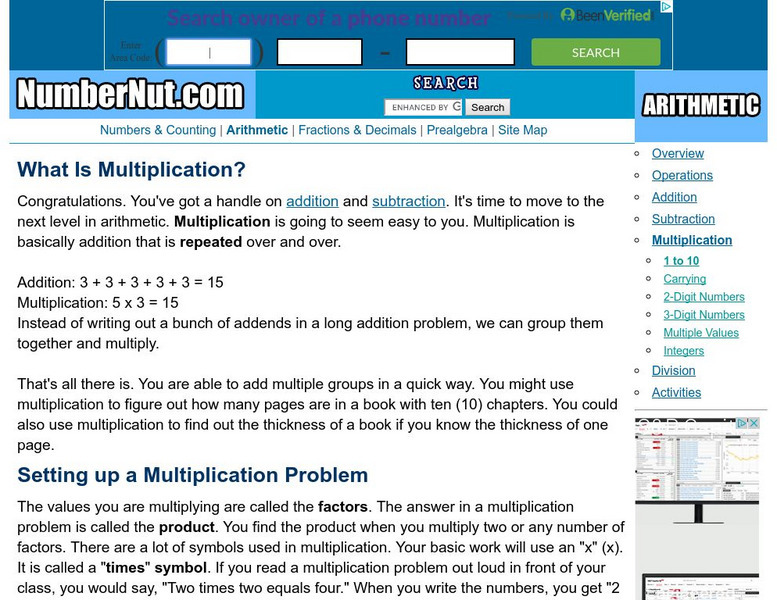Hi, what do you want to do?
National Council of Teachers of Mathematics
The Math Forum: Tessellation Tutorials
This site provides a wealth of tutorials regarding tessellation. Content ranges from basic definitions of what tessellation is, to the math behind it, to various learning activities.
NumberNut
Number Nut: Division: Remainders
Learn about remainders when dividing and the patterns when dividing numbers that are less than ten. Then practice your skills with the two interactive activities; one-digit division quiz with remainders and the one and two digit division...
NumberNut
Number Nut: Numbers and Counting: Counting to 50
Did you know that counting and all numbers are based on tens and that everything starts over when you hit a number with a "0" in the ones column? This lesson provides strategies and pattterns for counting to fifty and includes two...
Other
Bio Web Evolution: Homepage
This site from BioWeb Evolution was originally created as a ThinkQuest entry, and it has some good basic information about evolution. This page is on fossils and geologic time.
Fun Brain
Fun Brain: Number Cracker (Number Series Game)
The Number Cracker needs you to help find a secret code by identifying the missing number in a series.
University of Cambridge
University of Cambridge: Nrich: Round and Round the Circle
Learn multiplication with this dial star exercise. Predict what shapes you will get with different numbers.
University of Cambridge
University of Cambridge: Nrich: Amy's Dominoes
On this one page website sharpen your logic and problem solving skills while working on this challenge. The solution is available to double check your solution.
ICT Games
Ict Games: 100 Hunt Plus 9
You will need to add 9 to the target number given. Find the sum and click it in the hundreds chart. See if you can keep your time score as low as possible.
University of Cambridge
University of Cambridge: Nrich: Seven Pots of Plants
On this one page website sharpen your logic skills while working on this flower pot labels mix up challenge. The solution is available to double check your solution.
University of Cambridge
University of Cambridge: Nrich: Magic Squares
In a Magic Square all the rows, columns and diagonals add to the same number. This number is called the Magic Constant. Learn math fundamentals visually and have fun at the same time.
NumberNut
Number Nut: Multiplication: 1 to 10
Demonstrates how to use repeated addition to multiply single-digit numbers, how to recognize number patterns that can help with understanding, as well as how to use a multiplication table for facts that need to be memorized. Includes...
NumberNut
Number Nut: Division: Remainders a Little Left Over
Explains what remainders are in division, and points out patterns in single-digit division. Makes reference to how remainders are related to decimals. Includes practice activities.
Other
Population Education: Homepage
Population Education provides teacher training and a variety of teacher tools to help educators on population concepts such as population growth, overpopulation, our effect on the environment, and related resources.















